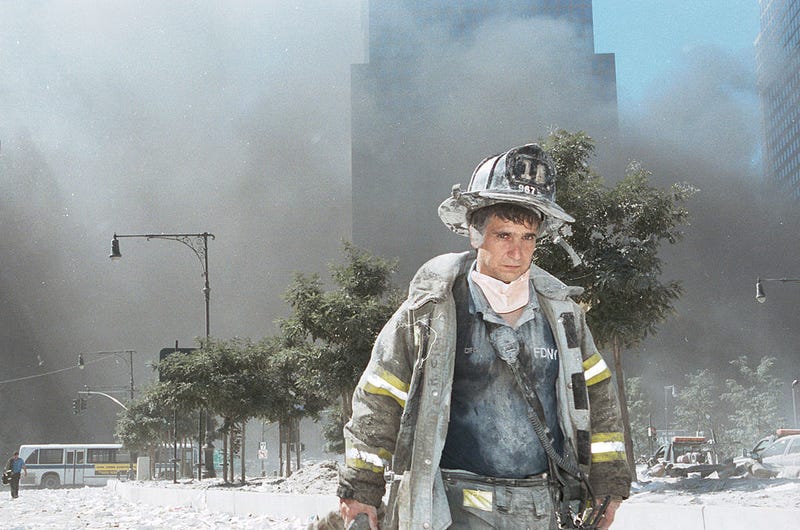
NEW YORK (1010 WINS/WCBS 880) — New research suggests that first responders at the site of the fallen World Trade Center who did not wear protective gear have an elevated risk of dementia, shedding light on the health effects of Ground Zero’s dust and debris.
The study, published Wednesday in JAMA Network Open, comes out of Stony Brook University. Researchers followed 5,000 9/11 responders—all of which were 60 and under at the time of their first cognitive assessment with no signs of dementia—and checked them for symptoms every 18 months. Participants were also questioned about their debris exposure, how much dust was around them while they worked and whether or not they wore protective gear.
“In essence, being down at the Trade Center, being exposed to dust, and being down there for lengthy periods of time and not wearing a mask or not wearing PPE or a respirator was associated with incremental increases in risk of dementia,” said lead researcher Dr. Sean Clouston on WCBS 880’s On The Record with Steve Scott.
Clouston said that the individuals who consistently wore personalized protective equipment were at a much lower risk—one that was closer to what you would have expected in the general population. According to the study, these findings were consistent even after adjusting for demographic, medical and social factors.
“We often think of dementia as an aging-related condition. A thing that happens when people are, you know, 70-, or 80-, or 90-years-old,” the researcher said. “But we’re finding [the] early signs of this in people who are 50- or 60-years-old. And that’s very rare, actually, and quite concerning.”
The study expands on 2022 research out of the Stony Brook WTC Health and Wellness Program that found 9/11 first responders showed signs of cognitive impairment at about three times the rate of the rest of the population.
Wednesday’s study is the first to link exposure mitigation tools, like PPE, to lower levels of cognitive impairment.
“We often think of the initial exposure as the bad one, but in this case, the longer you were there and the longer dealing with dust, the worse that risk was, especially if you weren’t wearing a mask,” Clouston said.
Researchers identified 228 cases of dementia among the participants. When compared with the general population, participants in the mild exposure group were 12 times more likely to develop early onset dementia, while those in the severe exposure group were 42 times more likely.
